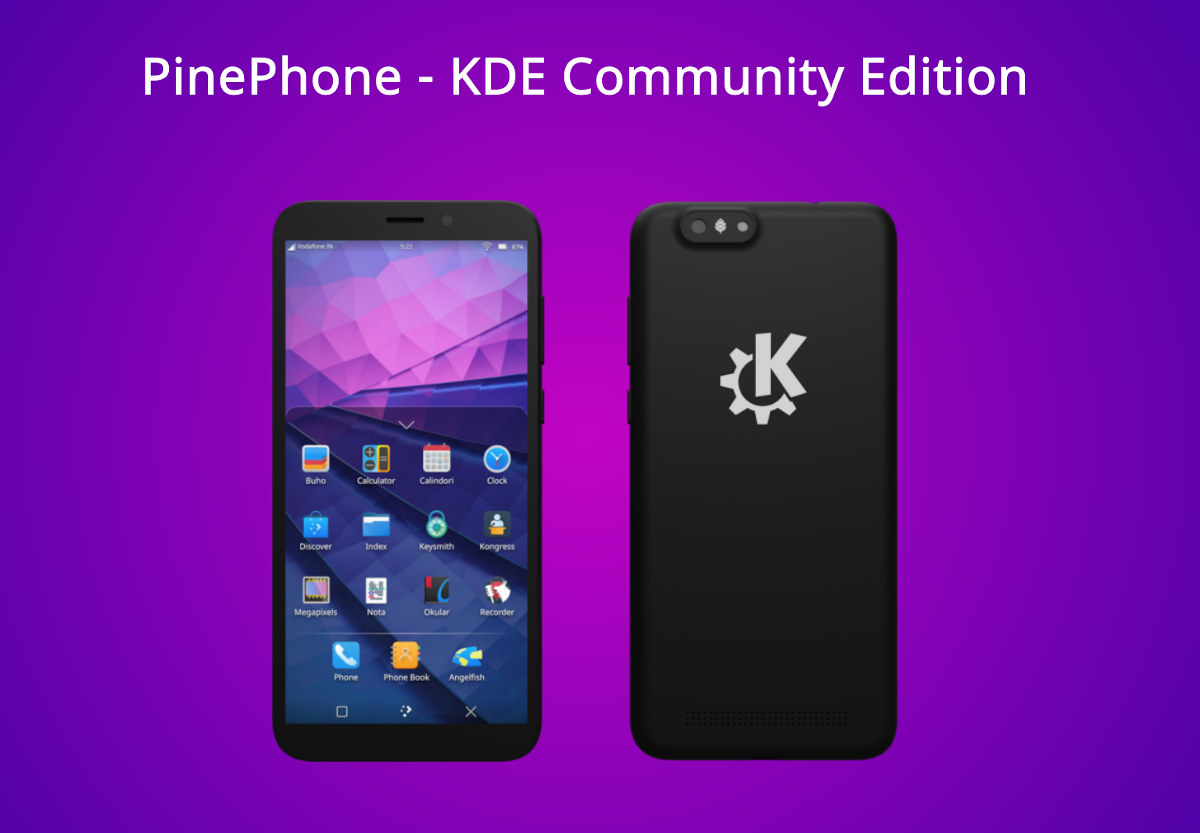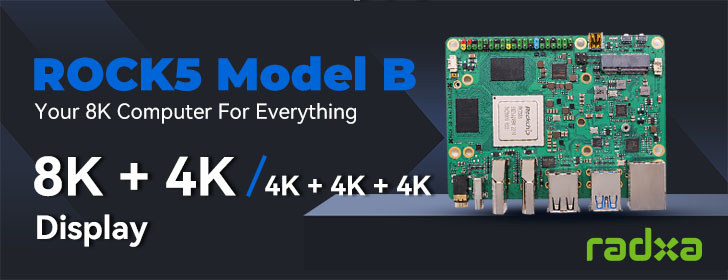PinePhone Linux phone first launched as an early adopter phone without any OS when the “Brave Edition” was first introduced in November 2019. Since then Pine64 launched variant with different Linux mobile OS including PinePhone Community Edition: UBports, the PostMarket Edition that also added support for mobile/desktop convergence with a model with more RAM and storage, as well as a USB-C Dock, and more recently there was a batch with PinePhone Manjaro Community Edition.
If you haven’t already gotten your hand on one of the earlier models, you’ll be glad to know the PinePhone KDE Community Edition is now available for pre-order for the same $149.99 price tag for the phone only or $199.99 with the convergence package.
PinePhone comes with Allwinner A64 quad-core Cortex-A53 processor that been around for many years. It’s not a performance beast, but it’s well supported by the open-source Linux community, and affordable. For $150, you’ll get 2GB RAM and 16GB storage, while the $200 model bring that up to 3GB and 32GB, plus you’ll get a USB-C hub with two USB Type-A host ports for keyboard and mouse, an HDMI output port, and a 10/100Mbps Ethernet port.
The KDE Edition features Plasma Mobile, based on Plasma Desktop, built upon Manjaro Linux. It includes apps such as KDE Connect to connect phones and desktops, the Okular document reader, the VVave music player, AngelFish web browser, and others which are available on both desktop and mobile.
Just like all other previous models, those are aimed at developers and early adopters with extensive Linux experience, and come with a short 30-day warranty. Pre-orders are scheduled to ship in mid-January 2021, and $10 will be donated to KDE e.V. non-profit organization to sponsor software development.
If you’d like to try out KDE on earlier models of PinePhone you can get the image and instructions from the Wiki, or alternative you could install the MultiBoot image currently supporting 17 different distributions.

Jean-Luc started CNX Software in 2010 as a part-time endeavor, before quitting his job as a software engineering manager, and starting to write daily news, and reviews full time later in 2011.
Support CNX Software! Donate via cryptocurrencies, become a Patron on Patreon, or purchase goods on Amazon or Aliexpress






Would love to play with it but atm don’t really have a use case for a further phone…
Maybe next time ?
Actually I’m hoping this will help convincing some of the more conventional mobile or SOC sellers to embrace open source a wee bit more… 7 know dreams…
They could as a whole fund a open source optimised Linux base. With different browser functions.
Open one browser function you get a desktop. Open browser two function you get a phone interface. Open bowser three function you get the internet access. Open browser four you get a TV interface. All within a Linux updateable base.
I think PinePhone made a strategic error by trying to build their own hardware. I can easily get a private, Google-free phone with superior specs and performance for the same or less money.
Moto G7 Plus (xt1965-t) with Snapdragon 636, 4gb Ram, and 64gb storage
with e/os.
Google free yes but what about mainline Linux kernel?
As long as an SOC is on a downstream kernel there will never be any assurance how long it can be supported, new features and security fixes on kernel 3.10 is not worth the efforts.
Agreed, and the concept and is brilliant (with kill switches and so many distributions as well), but the icing on the cake will be beefed up h/w, and would make the phone more practical for use. As such performance is not comparable to the competition.
Sadly, Qualcomm is not ideal for open-source projects. I don’t think I’ve ever seen a Qualcomm datasheet, let alone a TRM. Everything must be under NDA, and with severe penalties for leaking. Same for MediaTek, except for their IoT chips.
So that leaves us with other chips from NXP, Allwinner, Rockchip… that are not usually found in phones.
There is a tablet with A133 but no open software , Teclast P80 as liliputing reported.
For me the question is not so much about the user interface, but rather about the applications running on the phone.
Will legacy messaging like SMS, MMS and newer RCS be supported? And even more important, will WhatsApp, Threema, Signal, Telegram, Facebook Messenger, etc. be available? For messaging, calls and video-calls?
What is a smartphone good for if I can not communicate with others?
Small typo there, I assume that should read 2021 instead. 🙂
Unfortunately, too much distributions and too much UIs. As of today, there is not one single distribution that makes this phone reliable for an everyday use.